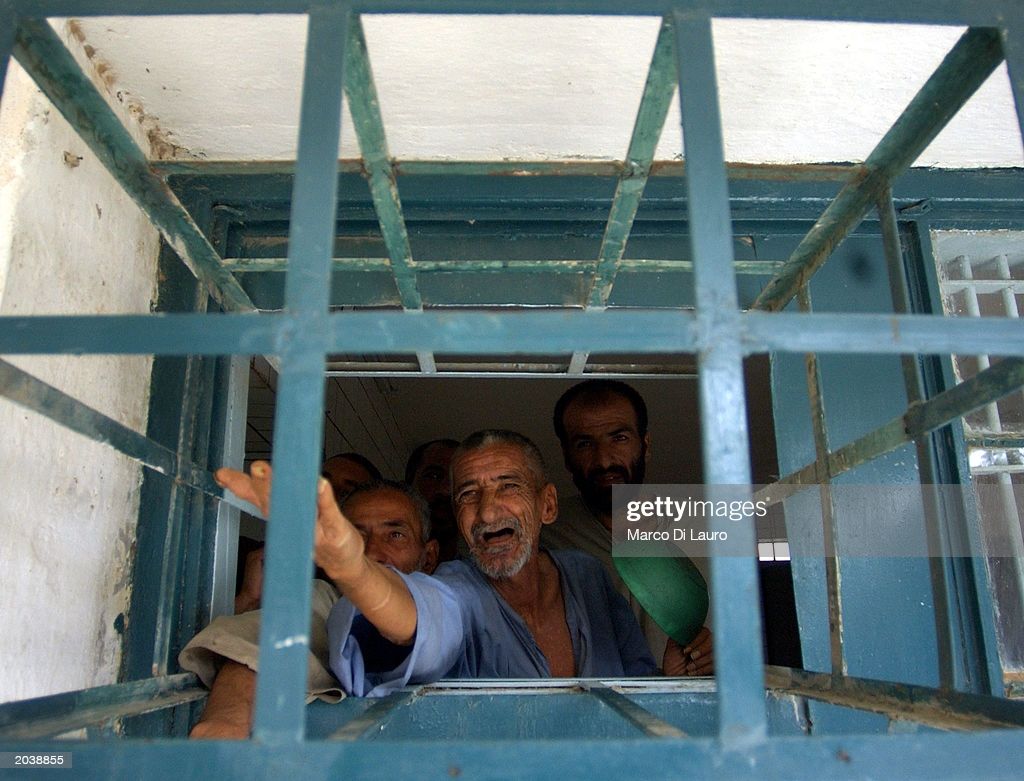Trauma in Iraq
Some comments on historical trauma and victimization in Iraq.

In 2008 the WHO conducted a study in a Baghdad university which showed that more than 70% of the students suffer from depressive symptoms. Ironically after discovering these alarming outcomes, the researchers were so surprised that they repeated the survey with similar results. To date Iraq is counting a small 1.5 out of 100,000 employees in the field of psychology, 0.6 of whom are licensed psychologists. Today patients suffering from mental illness are only treated in 2 psychiatric hospitals in Baghdad (Al Rashad and Ibn Rushd), in psychiatric units of general hospitals across the country, as well as in outpatient mental health facilities.
For many, their understanding of trauma is based on a eurocentric concept of traumatic disorder (PTSD). This disorder is often framed as a problem reserved to a specific set of individuals who are distinct from the rest of society. Narratives on trauma are then produced in the public space and in popular culture, characterized by the idea of individuals fighting and overcoming trauma during a post-traumatic condition. Trauma is culturally tied to the European experience of post-world war II peace and prosperity where many of the severely traumatized could be clinically treated for their PTSD on an individual level. However, what does one do when there is no “post” in ‘‘post-trauma”? Or when trauma is ongoing and part of daily life for almost the majority of a population? Is it fair and does it make sense to employ the term trauma and its implied eurocentric understandings to a multiple wounded country like Iraq which has experienced being in an acute ‘shock and awe’ since 2003, or 1991, or even earlier?

The American ‘liberation’ of Iraq in 2003 included the violent assault on 1,400 institutionalized patients in Baghdad’s Al Rashad long-term psychiatric hospital. On April 9, US marines knocked down a wall of the hospital with their tanks to set up a command post, at the time they claimed to be not aware that Al Rashad was a functioning hospital. In no time a large part of the patients fled the building. Some of the patients were killed by bullets near the gate, amongst them Hanna Fatah who had been a patient of Al Rashad for 30 out of her 70 years. Others who stayed were exposed to abuse and rape. Following the tragedy of Al Rashad hospital, Iraqi mental health care was positioned by the WHO and mainstream media as a humanitarian concern. Iraq’s mental health patients were framed as a source of danger that required containment. The patients of Al Rashad became representatives of a governance vacuum that needed to be taken care of. Due to the massacre of al Rashad hospital the implementation of a new Mental Health Act in Iraq received priority during the first year of the US occupation. The mental health act was designed with input from international NGOs such as Oxfam, the US Department of Health and lobbying groups from outside of Iraq. The Mental Health act favored external contractors over crucial local Iraqi expertise. At the same time the tragedy was used by the occupation forces to legitimize increased investments in security and monitoring.
The perception was that the Iraqi mental healthcare system should be reconstructed from scratch rather than built on the existing Iraqi institutions. After 2003 a neoliberalized community-based mental care system was introduced, instead of the former state-led institutionalized care model. For example, it was expected that mental health care could become a private service provided by enterprises and (foreign) NGOs, placing the main focus on the self-reliance of the patient. This was established despite the fact that due to Iraq’s historically institutionalized mental care there were non-existent structures to provide adequate community based care. This shift to community based mental care also left out the role that Iraqi religious and cultural institutions play in mental health provision. That the unstable situation of Iraq due to the invasion and subsequent occupation was a source for increased mental distress for Iraqis was not accounted for by this Mental Health Act. Is the disruption of public services amidst a war in itself not a major cause of mental illness?
Following the Health Act, the US Occupation in Iraq in consultation with the WHO decided to close down Al Rashad psychiatric hospital in an attempt to deinstitutionalize mental health care [1]. This again resulted in the discharge of many of the patients of Al Rashad hospital in 2006, with the only difference being that this time the patients were assisted in their way to the exit. Later it was confirmed that two persons who carried out bomb attacks in Baghdad that same year were identified as having been prematurely discharged from Al Rashad.
The question that should be raised is how an American mental health model could be applicable to Iraq, a country which has a completely different environment, society, history and culture. Additionally, imposing a war on Iraq, disrupting communities, and disconnecting people from their surroundings and histories the mental health of a community will almost automatically deteriorate. Imposing a new mental health model on Iraq will not magically dissolve this, it only removes the attention from the role that the occupation forces play in promoting structural violence and in the deterioration of mental health. Iraqis are forced to receive market solutions created outside of Iraq that focus on the individual level that mostly help Iraqis to accept and adjust the occupational reality and all its consequences.
We should, therefore, be reluctant to project western discourses of trauma onto Iraq. In Iraq trauma is ongoing, trauma becomes something to cope with, something to deal with creatively until it becomes the new normal. One can ask himself what is the meaning of trauma in a society where almost everyone is traumatized? There is a large swatch of uncategorizable, not clearly identified set of Iraqis who are fundamentally traumatized, brutalized and assaulted. The majority of Iraqis fall outside of the NGO loop because of this. There is no mental health sector that can adequately deal with this much trauma and to a certain extent it therefore makes little to no sense to imagine the Mental Health Act can adequately help if the problem is structural. Foreign NGOs who claim otherwise are scamming Iraq and are disseminating a decontextualized understanding of Iraq’s psychological problems, creating further divisions and misunderstandings.
References
[1] The western world experienced a shift in the field of psychiatry from assistance to mental patients to protection from mental patients. In the 19th century psychiatric patients began to be constitutionally classified as a social danger. To enable this, madness had to be codified as a mental illness along the lines of biomedical models that were being developed in the medical field. Psychiatrists became closely associated with crime. During the medicalization and deinstitutionalization process, mental health disorders became universally classified in the American DSM system. In Iraq, the new mental health act was in the same way written alongside military intervention and specifically targeted Iraqis as a whole as a ‘traumatized population’, treating “trauma” with the aim of restoring stability.
Stef Craps. Postcolonial Witnessing: Trauma Out of Bounds. Basingstoke: Palgrave Macmillan, 2013.
Hamid, H. (2007). Developing Iraq’s Mental Health Policy.
Rose, N. (1999). Powers of Freedom. https://assets.cambridge.org/97805216/50755/sample/9780521650755wsc00.pdf
